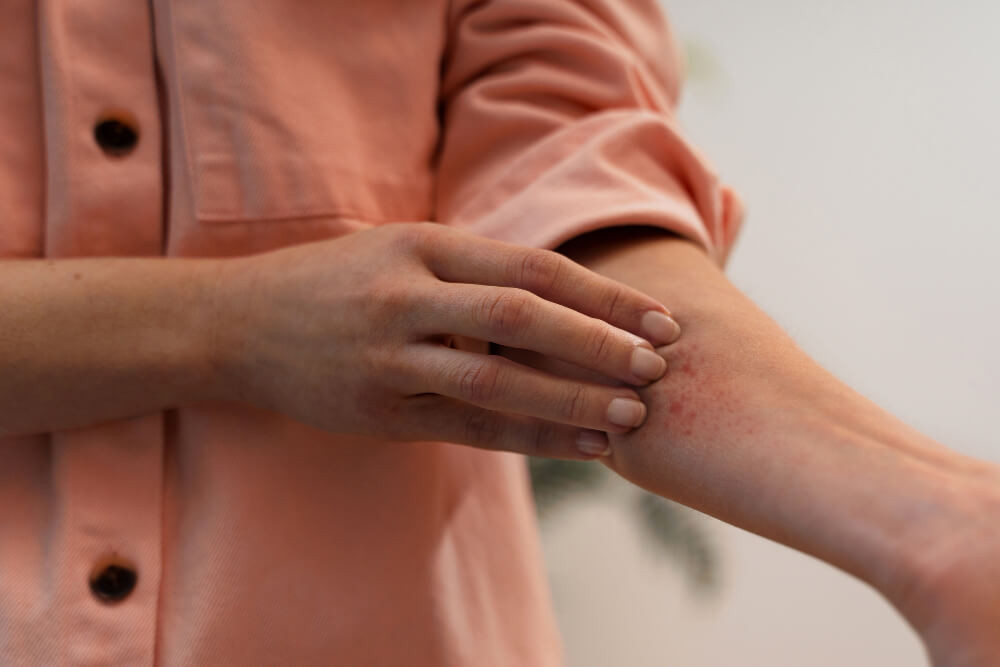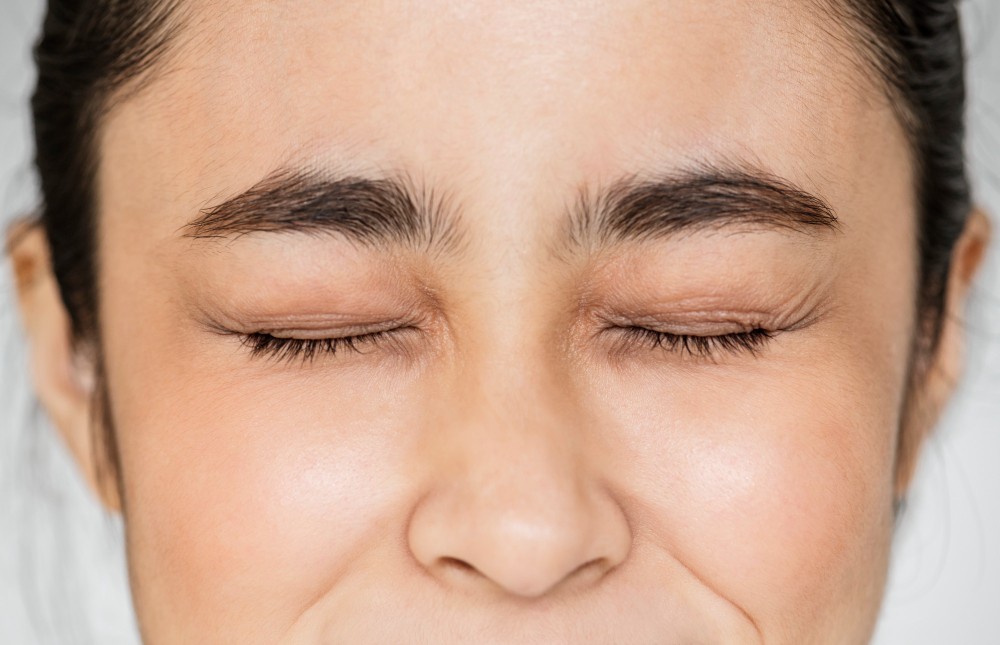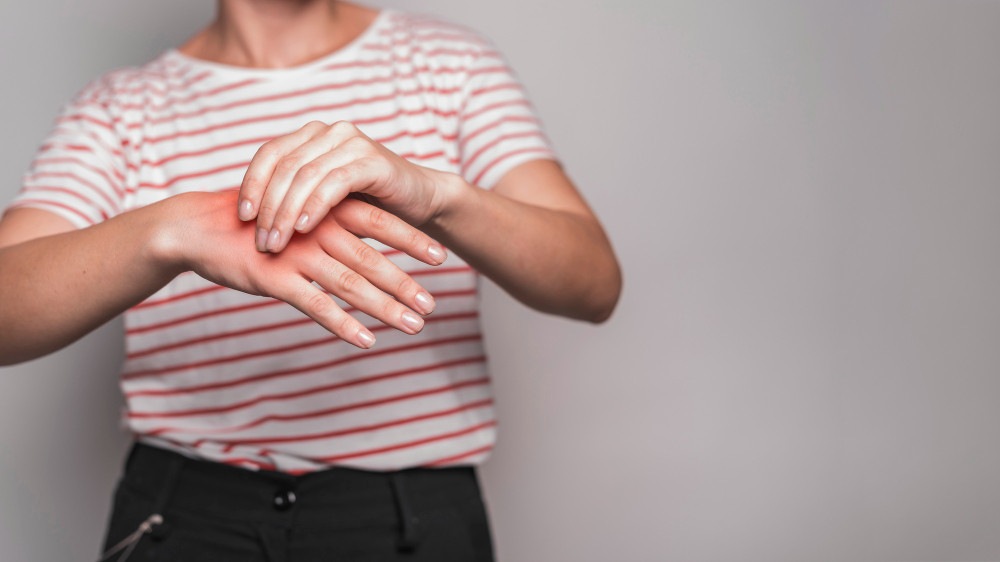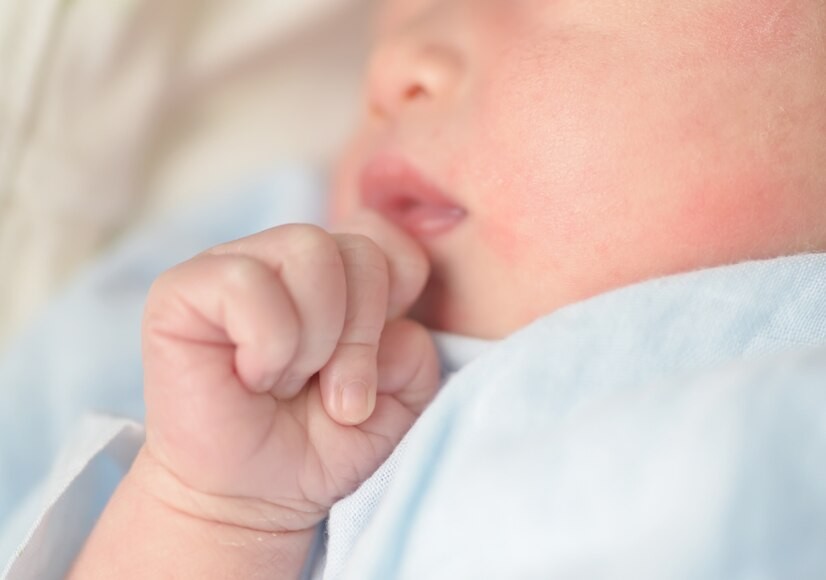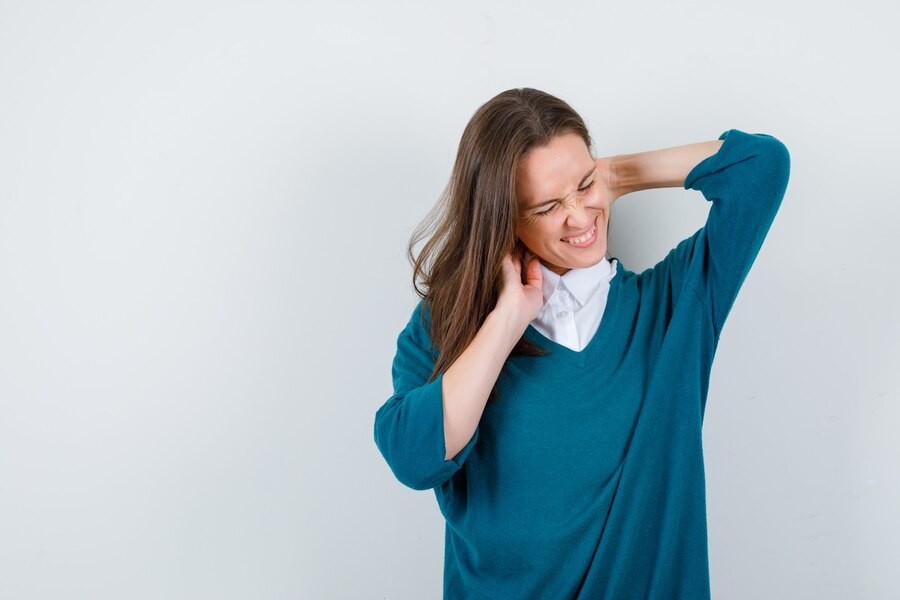Eczema is an inflammatory skin condition that causes itchy, dry, and cracked skin. This skin inflammation is harmless, but when it flares up, the itchiness of eczema can really interfere with your daily activities. One of the triggers for eczema flare-ups is cold weather. What should you do to prevent eczema flare-ups during cold weather?
How to Prevent Eczema Relapse in Winter
Eczema can affect patients in different ways. The triggers of eczema in each person can also vary, some of which are:
- Irritants such as soap, detergent, shampoo or hand sanitizer
- Weather factors such as dry and cold weather
- Environmental factors such as house dust mites, pet hair, or pollen
If you already know the things that can trigger eczema symptoms, eczema triggers such as irritants may be easier to avoid. But sometimes weather factors such as dry and cold weather are sometimes unavoidable.
Skin can become dry and itchy when the body experiences large temperature changes. For example, you've been traveling in strong sunlight, which is hot and humid, and then you enter a very cold office. Another example is when it's cold outside and you enter a heated room.
If your eczema relapse is triggered by cold weather, here are some preventative measures you can take:
Protect your skin when outdoor
Eczema can flare up in areas of the skin that are directly exposed to the outside air. When outdoors and exposed to cold weather, use skin protection such as long-sleeved clothing or a jacket.
Along with cold weather, sweat can also irritate eczema, so keep your body from overheating and sweating during cold weather. Choose cotton clothing and avoid materials that can trigger itching and overheat the body such as wool or nylon.
Read more: Polusi Udara Ternyata Dapat Menyebabkan Gatal Eksim
Use moisturizer more often
Winter can make skin even drier, and eczema symptoms are prone to appear on dry skin. In cold weather, you may need a moisturizer with a thicker texture than what you're used to.
Make sure you apply moisturizer more often, perhaps several times a day. Don't forget to apply moisturizer after showering. You can choose moisturizers like shea butter or oil-based moisturizers and emollients.
Use gentle grooming/self-care products
To avoid further drying of the skin, you should use a mild soap. Cold weather can also cause skin to become more sensitive. When it's cold and your skin is dry, you should choose a soap or shampoo that doesn't contain perfume and other skin irritants.
Read more: Perbedaan Antara Eksim dan Psoriasis
Avoid bathing with water that too hot
When the weather is cold, you tend to opt for a hot shower to help warm up your body. But bathing in too hot water can dry out your skin. Also, your body temperature cools down quickly after a hot shower, and the rapid change in temperature can trigger eczema. If you want to keep your body warm, choose lukewarm water when bathing so as not to strip your skin of moisture.
After bathing, be careful when drying your body with a towel. Instead of rubbing the body with a towel, it is better to pat the towel until the body dries. Then apply moisturizer all over the body.
Use a humidifier
The cold weather makes the air drier. You can use a humidifier to moisturize the air in the room. More moisturized air can prevent skin chapping and irritation.
Cold weather is a trigger for eczema flare-ups. If your eczema can flare up due to cold weather, there is nothing wrong with trying the methods above to prevent eczema relapse. If the symptoms of eczema become bothersome, you should consult a doctor.
If you need medical advice or consultation, you can either visit a doctor or make use of the consultation features that are available in the Ai Care application by downloading the Ai Care application from the App Store or Play Store.
Looking for more tips and information regarding health, first aid, and more home remedies? Click here!
- dr Hanifa Rahma
Silva, J. (2018). Available from: https://www.medicalnewstoday.com/articles/322422#ten-tips-for-preventing-eczema-flares-in-winter
Silver, N. (2023). 7 Treatments for Winter Eczema Flare-Ups. Available from: https://www.healthline.com/health/skin-disorders/winter-eczema-treatment#_noHeaderPrefixedContent
National Eczema Society. About Cold Weather and Eczema. Available from: https://eczema.org/information-and-advice/triggers-for-eczema/weather-and-eczema/
John Hopkins Medicne. Managing Eczema in Winter and Year Round: A Parents Guide. Available from: https://www.hopkinsmedicine.org/health/wellness-and-prevention/managing-eczema-in-winter-and-year-round-a-parents-guide
Califano, J., Rodriguez, D. (2022). 9 Ways to Prevent Atopic Dermatitis (Eczema) Flares in Cold Weather. Available from: https://www.everydayhealth.com/eczema/ways-to-prevent-atopic-dermatitis-eczema-flares-in-cold-weather/
Cleveland Clinic. Eczema. Available from: https://my.clevelandclinic.org/health/diseases/9998-eczema

